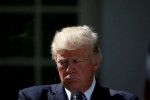British tapped UN and NGO phones and emails in Nigeria and Congo

British tapped UN and NGO phones and emails in Nigeria and Congo
Par Joan Tilouine, Simon Piel
The United Nations Development Programme does not escape British surveillance. With its annual budget of 5 bn dollars, the organization is closely monitored, especially in Africa.
United Nations personne in Mogadishu, Somalia, January 19, 2012. Most of the UN agencies in Africa have been wiretaped by British intelligence service, as well as Africa Union and European Union staff. | © Feisal Omar / Reuters
« What kind of machine gun are you hearing? », « I hope all is well in Maiduguri »: Mohammed Ibn Chambas, president of the Economic Community of West African States (ECOWAS), was in Monrovia, the Liberian capital, on August 3rd, 2009. He sent those text messages to a contact in Maiduguri in northeastern Nigeria, where the army was executing militants from the Islamist sect Boko Haram, before it became a jihadist group. Those communications are listed in a test report from the GCHQ seen by Le Monde in collaboration with The Intercept. This document is from the Snowden archive, which was originally given to Glenn Greenwald and Laura Poitras by the former NSA operative.
Like Mohammed Ibn Chambas, several employees of this regional organization, whose headquarters are in Abuja, Nigeria, were targeted by the British intelligence service. The same goes for the African Union (AU): the email address of Boubou Niang, then special rapporteur to the mediator of the UN and AU in Darfur can be found in the document.
Confidential, except for the GCHQ
The UN, the European Union and regional African organizations have been in the agency’s crosshair. A fair share of those organisations’ intelligence, analysis, programs, budgets and projects are confidential. Except for the GCHQ.
The United Nations Development Programme (UNDP) does not escape British surveillance. With its annual budget of 5 bn dollars, the organization is closely monitored, especially in Africa. Its representative in Niger, Khardiata Lo Ndiaye, appears in a document dated December 2009. The choice of Niger owes nothing to chance : the organization views this African country as one of the least developed in the world. The UNDP’s budget for this country is one of the biggest of the organization. Several email addresses of the UNDP, including the one of Souley Boubacar, a member of the organization’s media team, are among GCHQ targets.
United Nations Organization Mission in the Democratic Republic of the Congo (MONUC), that became the United Nations Organization Stabilization Mission in the Democratic Republic of the Congo (MONUSCO), appears in the documents from the GCHQ on December 10, 2009. The context is sensitive, especially in the eastern part of the country, where Tutsi groups, the main allies of the United Kingdom in the region, are involved in an armed struggle. The intelligence gathered by the UN mission, the most expensive in the history of the UN, are closely monitored by London. The GHCQ is also interested in the disarmament program put in place by the UN. Within the UN, the British intelligence services identified targets who might hold interesting information, such as an assistant in charge of the budgets for UN missions in Iraq.
European institutions are not spared. The European Commissioner for Economic and Financial Affairs since 2006, the Spanish socialist Joaquin Almunia, also appears in an intercept report from the GCHQ, dated January 2009. Coincidence? A formal complaint had been submitted by investors into European football clubs, accusing him of undue fiscal advantages granted to several Spanish clubs, including the Atletic Bilbao, of which he is a supporter. The complaint remained confidential until 2014, when Emilie O’Reilly, the European ombudsman, made it public to highlight the risk of conflicts of interest.
Snowden files: our revelations
Le Monde worked directly, during several days, in collaboration with The Intercept, on the Edward Snowden archive given to Glenn Greenwald and Laura Poitras: tens of thousands of documents exfiltrated by the former agent from the NSA servers, and safely stored by The Intercept.
Those documents show :
- British spying: tentacles reach across Africa’s heads of stattes and business leaders
- British spies closely track mineral-rich Congo’s business dealings
- Britain spied on companies, diplomats and politicians in French-speaking Africa
How the GCHQ carefully monitored technology specialists working for Internet and phone service providers, mainly in Africa.
- How British intelligence targeted Octave Klaba, founder of the largest European web hosting company OVH.
This list will be updated with each new publication.







